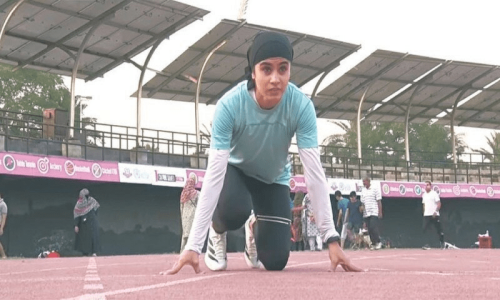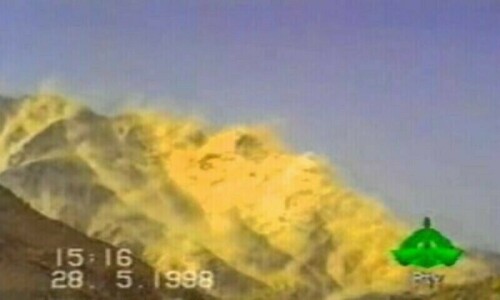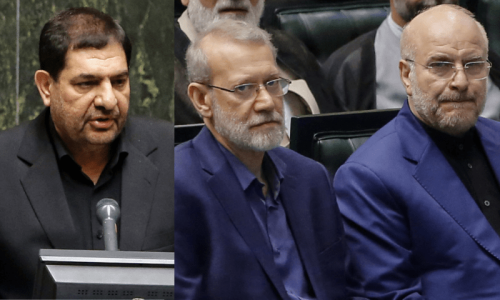
MANAMA: Bahrain has called in forces from its Sunni Gulf neighbours to put down unrest by its Shi'ite Muslim majority after protesters overwhelmed police and blocked roads in a resurgence of mass protests seen last month.
Nabeel al-Hamer, a former information minister and adviser to the royal court, said on his Twitter feed these troops were already on the island, a key US ally and headquarters of the US Navy's Fifth Fleet.
Analysts and diplomats say the largest contingent in any Gulf Cooperation Council (GCC) force would likely come from Saudi Arabia, already worried an uprising by Bahrain's Shi'ites would embolden restive Shi'ites in its own Eastern Province, the centre of the oil industry.
“Forces from the Gulf Cooperation Council have arrived in Bahrain to maintain order and security,” al-Hamer said.
Gulf Daily News, a newspaper close to Bahrain's powerful prime minister, reported on Monday that forces from the GCC – a six-member regional bloc comprising Saudi Arabia, the United Arab Emirates, Kuwait, Qatar and Oman in addition to Bahrain – would protect strategic facilities.
The GCC forces would help maintain law and order, it said in a front page report.
“Their mission will be limited to protecting vital facilities, such as oil, electricity and water installations, and financial and banking facilities.”
Saudi-owned news network Al Arabiya also quoted an official source saying Bahrain would be supported by forces from the GCC, a military, economic and political alliance.
The reports come after Bahraini police clashes on Sunday with mostly Shi'ite demonstrators in one of the most violent confrontations since troops killed seven protesters last month.
After trying to push back demonstrators for several hours, police backed away and youths built barricades across the highway to the main financial district of the Gulf banking hub.
Those barricades were still up on Monday morning, with protesters checking cars at the entrance to the Pearl roundabout, the focal point of weeks of protests. On the other side of the same highway, police set up a roadblock preventing any cars moving from the airport towards the financial harbour.
Police were out in force in some areas but there was no evidence of soldiers, Bahraini or otherwise in Manama.
Sectarian conflict
Bahrain has been gripped by its worst unrest since the 1990s after protesters took to the streets last month, inspired by uprisings that toppled the leaders of Egypt and Tunisia.
Any intervention by Gulf Arab troops in Bahrain is highly sensitive on the island, where the Shi'ite Muslim majority complains of discrimination by the Sunni Muslim royal family.
Most Gulf Arab ruling families are Sunni and intervention could be seen by local Shi'ites as an assault. This, in turn, could encourage intervention by non-Arab Iran, the main Shi'ite power in the region. Accusations already abound of Iranian backing for Shi'ite activists in Bahrain, accusations they deny.
“Shi'ites in states with large Shi'ite populations, in particular Kuwait and Saudi Arabia, may intensify their own local anti-regime demonstrations,” said Ghanem Nuseibeh, Partner at Cornerstone Global.
“The Bahraini unrest could potentially turn into regional sectarian violence, that goes beyond the borders of the particular states concerned.”
Gulf neighbours are watching the unrest in Bahrain closely, but nowhere more so than Saudi Arabia, which is joined to the island by a causeway.
Saudi Arabia has seen small protests in its Eastern Province, where its oil industry is based and which is home to most Shi'ites in the conservative Sunni kingdom.
Speaking in Riyadh on Sunday, GCC Secretary-General Abdul Rahman al-Attiyah said that ensuring security and stability in any Gulf Arab country was the responsibility of the whole bloc.
Attiyah did not say Bahrain had called for help. In an apparent reference to Iran, however, he said the GCC rejected foreign meddling in Bahrain and that any effort to destabilise the country was a “dangerous encroachment on the security and stability” of the whole region.
On Sunday, the White House urged Bahrain to show restraint and engage in dialogue.
But in a sign that further unrest was expected, Britain urged its nationals on Monday not to travel to Bahrain and asked those in the country to “remain at home until further notice”. – Reuters













































Dear visitor, the comments section is undergoing an overhaul and will return soon.